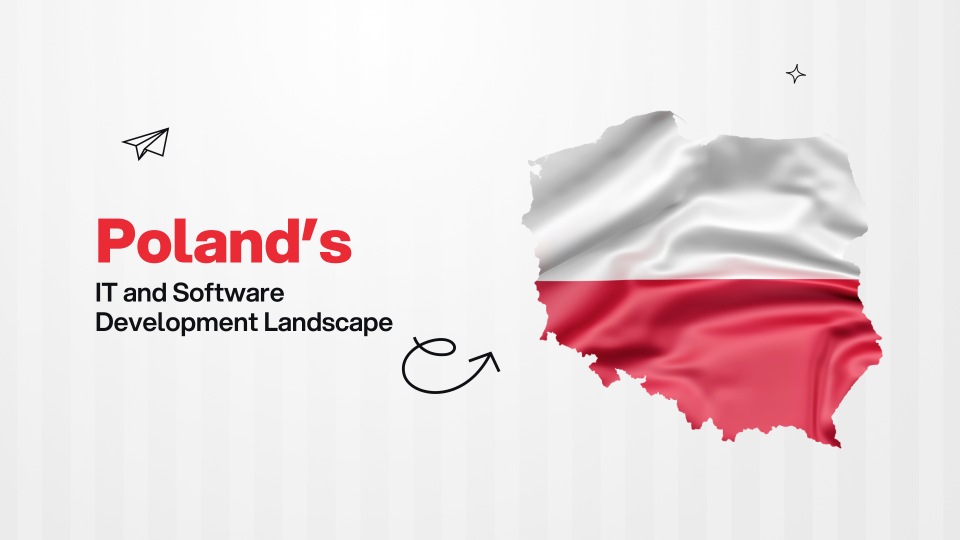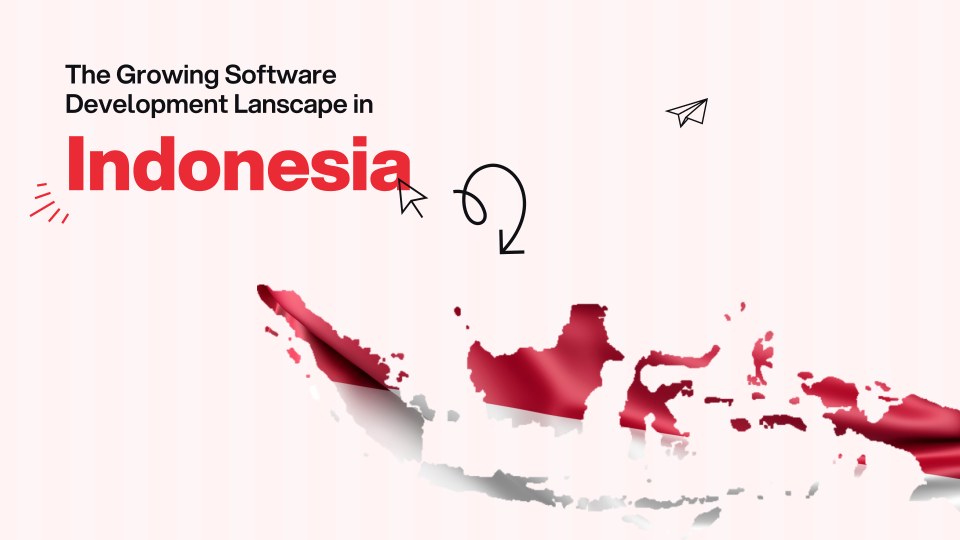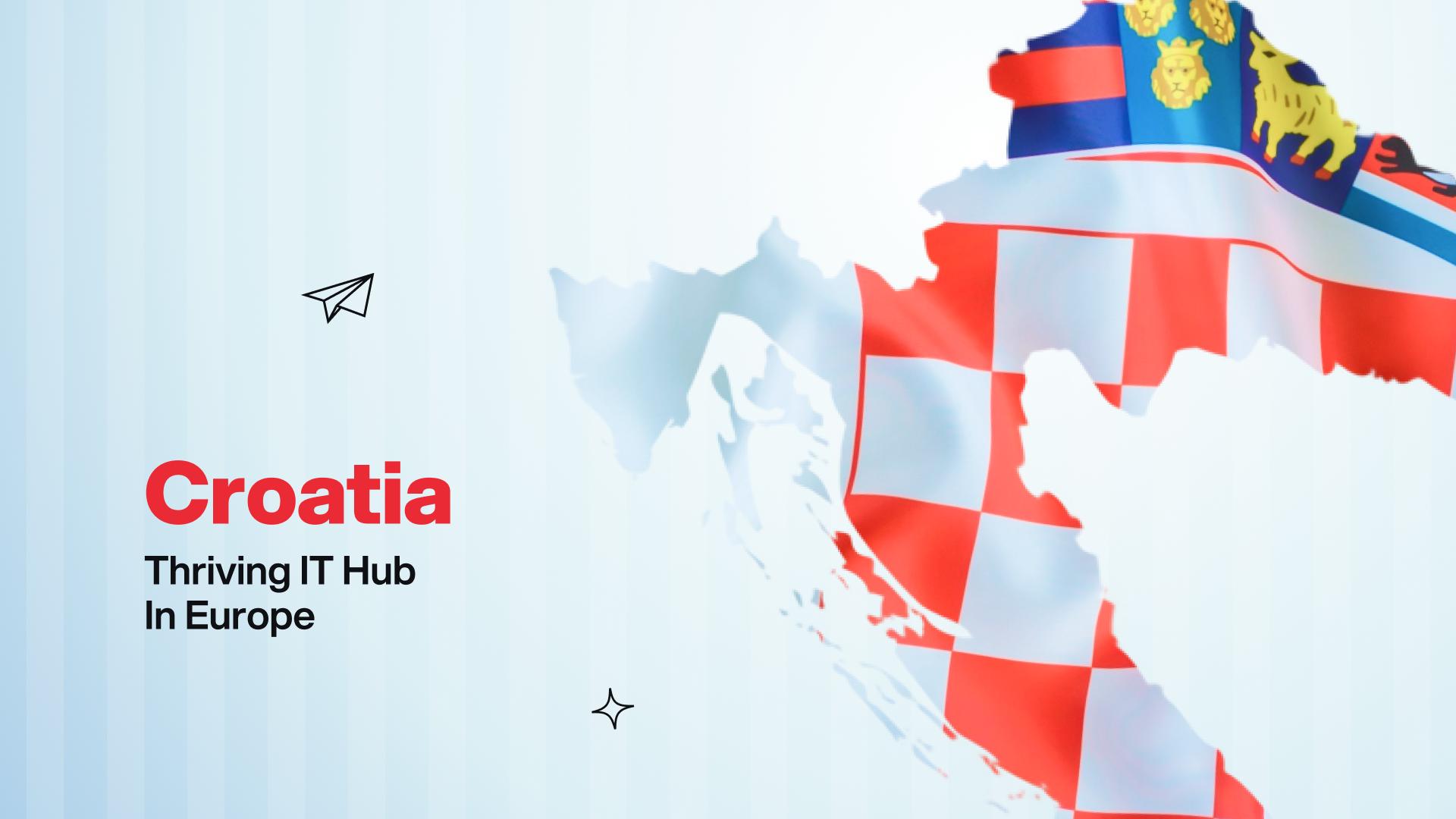Post Activity
 208
208
Table of Content
Share This Post
Table of Content
IT outsourcing in Sri Lanka stands out for its highly skilled, English-proficient workforce. The strong cultural alignment and real-time collaboration enabled by its strategic time zone ensure the country’s seamless integration with Western teams. Good IT infrastructure, ISO-certified providers, and pro-business government policies further strengthen its appeal.
In a global landscape increasingly shaped by innovation, speed-to-market, and operational resilience, Sri Lanka has quietly emerged as a high-performance destination for software development outsourcing.
The Strategic Appeal of Sri Lanka in 2025
Sri Lanka’s technology sector is on a determined path toward innovation-led growth. The country is targeting $5 billion in tech sector contribution to GDP by 2030 and has already achieved $3 billion in IT/BPM export revenue by 2024. It is one of the top three foreign exchange earners. The IT services market is projected to reach $1.13 billion by 2025, with business process outsourcing (BPO) contributing $370 million.
Sri Lanka’s Economy at a Glance
| Gross Domestic Product | ||
| Annual GDP | USD 84.3 Billion (2023) | |
| GDP Per Capita | USD 3,828 (2023) | |
| Income Category | Lower-middle Income (2025) | |
| People | ||
| Population | 23.2 Million (2025) | |
| Literacy Rate | 92% (2022) | |
| EF English Proficiency Index | Low Proficiency (2024) | |
| IT Sector | ||
| IT Services Market Size | USD 852.4 Million (2025) | |
| IT Outsourcing Market Size | USD 293 Million (2025) | |
| Registered Software Companies | 300+ (2025) | |
| Business Environment | ||
| Ease of Doing Business | USD 852.4 Million (2025) | |
| Political Stability Indicator | Percentile Rank: 25.6 (2023) | |
| Corruption Perceptions Index | Score: 34/100 | Rank: 115/180 (2023) | |
The developer talent pool now exceeds 150,000 professionals. Additionally, this growth is supported by fresh STEM talent and strategic educational reforms. Simultaneously, digital adoption is rising rapidly, with a 45% surge in digital transactions in 2023. This reflects widespread user readiness, a critical factor for companies outsourcing customer-facing digital platforms.
Sri Lanka also delivers meaningful cost advantages, with developer rates ranging from $25 to $40 per hour, which is significantly lower than rates in North America or Western Europe. These cost savings are achieved without compromising quality. An increasing number of firms follow global standards in software quality assurance and agile development practices.
Explore Your Next Development Partner!
Explore a curated list of trusted firms based in Sri Lanka. Find the right team for your next project.
Business Environment and Risk Profile
Sri Lanka’s macroeconomic and policy landscape is showing signs of stabilization. The Political Stability Index stands at 25.59, indicating gradual improvements in governance. The foreign exchange rate is currently 300.88 LKR to USD, with a minimal -0.16% movement, offering predictability for long-term contracts. With inflation at -0.60%, cost stability is further reinforced.
From a legal standpoint, the enactment and enforcement of the Personal Data Protection Act (PDPA) in 2023 is a major milestone. This law is modeled closely on GDPR.
Time Zone and Communication Advantages
Time Zone Alignment
Operating in the UTC+5:30 time zone, Sri Lanka allows convenient real-time collaboration with Western Europe and partial overlap with North America.
For businesses that rely on Agile workflows and frequent sync-ups, this overlap supports smooth sprint planning, review meetings, and faster iteration cycles.
Communication style
The country’s EF English Proficiency Index rank is low (73rd globally), but among IT professionals, over 92% are fluent in English.
This significantly improves communication effectiveness, both in project management and technical documentation, and reduces friction often experienced in other outsourcing destinations.
Technical Strengths and Talent Composition
Sri Lanka’s IT services industry is equipped to handle complex, enterprise-grade projects. The local talent base is particularly strong in cloud computing, DevOps services, data analytics, mobile app development, and custom software engineering. Core technologies include Java, Python, .NET, PHP, and JavaScript.
Government-accredited programs and public-private initiatives have led to measurable improvements in tech education and skilling. This includes global partnerships like the AI pact with Singapore.
Ready to Build Your Team?
Let’s create together, innovate together, and achieve excellence together. Your vision, our team – the perfect match awaits.
Infrastructure, Digital Maturity, and AI Readiness
Sri Lanka’s digital and AI ecosystem is in early stages but rapidly advancing. When IT outsourcing in in Sri Lanka, it is important to factor in the following:
Digital Infrastructure
The Digital Infrastructure Index score of 0.11 reflects the baseline stage of national-level digital infrastructure deployment.
While low, this score is contextualized by active efforts to build digital identity systems, unified digital payment platforms, and government data-sharing layers by 2025. These infrastructure layers are foundational for secure and scalable offshore development.
AI Readiness
The AI Index Score of 0.44, alongside a 10-place rise in global rankings in 2023, signals significant momentum in AI readiness.
This includes a formal national AI strategy released in 2025 and focused efforts on responsible, inclusive AI adoption. For businesses investing in AI-powered app development or data engineering, this emerging maturity is a green flag for collaboration and long-term innovation alignment.
Startup ecosystem
The Human Capital Index of 0.6 indicates moderate but growing investment in health, education, and workforce readiness.
This is further supported by a startup ecosystem that now includes more than 1,000 tech startups and access to $50 million in dedicated innovation funding.
Cultural Compatibility and Collaboration
Sri Lankan development teams are increasingly fluent in Agile workflows and familiar with Western delivery expectations. Companies such as WSO2, Sysco LABS, and HCL Technologies are active examples of teams delivering complex, global projects from Colombo and other hubs.
According to Hofstede’s dimensions, Sri Lanka exhibits a mix of hierarchical structure and collaborative adaptability. This positions teams to operate effectively under defined leadership while remaining flexible to client-led changes.
Legal, IP, and Compliance Considerations
With the PDPA now fully enacted, companies can expect GDPR-style data protection rules, including lawful processing, individual rights, and enforceable accountability. Firms with ISO 27001 or SOC 2 Type II certifications further enhance trust.
While there is no EU/US data adequacy status, standard risk mitigation practices such as contractual clauses, NDAs, and escrow arrangements are common.
Proven Vendor Models
IT outsourcing in Sri Lanka offers flexible engagement models to match different business needs:
- Dedicated Teams work well when you need control, consistency, and long-term alignment with your internal roadmap.
- Time and Materials (T&M) models provide adaptability for evolving requirements, especially when building Minimum Viable Products (MVPs) or deploying agile iterations.
- Fixed-Price Projects suit well-scoped development like AI-driven personalization features or specific cloud solutions.
- Hybrid Models blend predictability with flexibility, supporting phased development without compromising governance.
These options allow companies to tailor engagement without sacrificing visibility, security, or software engineering standards.
Vendor Selection Checklist
While IT outsourcing in Sri Lanka, select vendors with:
- Industry-specific expertise (e.g., healthcare, fintech);
- Proven global delivery and international track records;
- Agile processes and robust IP security protocols;
- Scalability to handle growing project demands over time;
- Adequate team size to ensure resource depth;
- Positive client feedback and case studies demonstrating impact;
- Multi-time-zone support for seamless distributed team coordination;
- Transparent pricing models with clear cost breakdowns.
Final Thoughts
IT outsourcing in Sri Lanka is an increasingly strategic option for organizations seeking to balance cost, quality, and long-term scalability. The maturing legal environment, deepening talent pool, and expanding digital infrastructure ensure the country’s readiness to support mission-critical software solutions.
Whether the goal is to accelerate cloud adoption, deliver enterprise mobile apps, or scale AI-powered platforms, IT outsourcing in Sri Lanka offers both the capacity and commitment to drive results. For companies focused on cost optimization, secure delivery, and engineering excellence, outsourcing software development to Sri Lanka is a long-term investment in resilience and innovation.
Find Your Perfect Software Outsourcing Partner
Unlock a world of trusted software outsourcing companies and elevate your business operations seamlessly.






